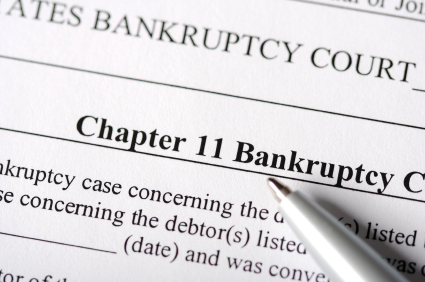

More bad news for the crypto market after Core Scientific, one of the largest Bitcoin miners, filed for Chapter 11 in Texas on Wednesday morning.
CNBC and Reuters reported the development, citing a person familiar with the company’s finances, and it comes after a year of plunging cryptocurrency prices and spiraling energy prices.
Austin, Texas-based Core Scientific said however that despite filing for Chapter 11, it would not liquidate and would continue to mine Bitcoin normally. Indeed, it expects to enter into a restructuring support agreement with its creditors.
According to the CNBC source, Core Scientific is still generating positive cashflow, but that cash is not sufficient to repay the financing debt owed on equipment it was leasing.
According to Reuters, the company’s shares have lost roughly 98 percent of their value so far in 2022.
Upon news of the Chapter 11 filing, its shares fell another 14 percent in premarket trading.
In a statement on Wednesday, Core Scientific reportedly said its creditors have also agreed to provide up to $56 million in debtor-in-possession financing.
One of the largest creditors of Core Scientific, B. Riley Financial had reportedly offered $72 million last week to avoid the bitcoin miner’s bankruptcy.
In its bankruptcy petition, Core Scientific said it has $1 billion to $10 billion in assets and liabilities, and creditors between 1,000 and 5,000.
Core Scientific mines for cryptocurrencies such as bitcoin – a process that requires a huge amount of electricity.
Core’s market capitalisation had fallen to $78 million as of end of trading Tuesday, down from a $4.3 billion valuation in July 2021 when the company went public.
It is fair to say the crypto market has experienced significant turmoil during 2021 and 2022.
Crypto investors knew they were in for a bad time after the collapse of the TerraUSD “stablecoin” in early May, which along with the Luna coin was linked to a similar high-yield scheme.
This was followed in July by the collapse of cryptocurrency lender Celsius Network and Voyager Digital, which filed for Chapter 11 (bankruptcy) proceedings in the US.
Celsius was a Core customer, and when Celsius’ debts were wiped out during its bankruptcy proceedings, it reportedly had an impact on Core’s balance sheet.
In November the FTX crypto exchange underwent a spectacular collapse, with criminal charges and legal battles ensuing.
The FTX collapse also triggered a further crash of crypto prices as well.
But the contagion effect rippling across the crypto sector did not stop there.
Shortly after the FTX collapse, cryptocurrency lender BlockFi filed for Chapter 11 bankruptcy protection, in a New Jersey court.
Meanwhile Compute North, which provides hosting services and infrastructure for crypto mining, filed for Chapter 11 bankruptcy in September.
All Cybertrucks manufactured between November 2023 and February 2025 recalled over trim that can fall…
As Musk guts US federal agencies, SEC issues summons over Elon's failure to disclose ownership…
Moonshot project Taara spun out of Google, uses lasers and not satellites to provide internet…
Pebble creator launches two new PebbleOS-based smartwatches with 30-day battery life, e-ink screens after OS…
Amazon loses appeal in Luxembourg's administrative court over 746m euro GDPR fine related to use…
Nvidia, xAI to participate in project backed by BlackRock, Microsoft to invest $100bn in AI…